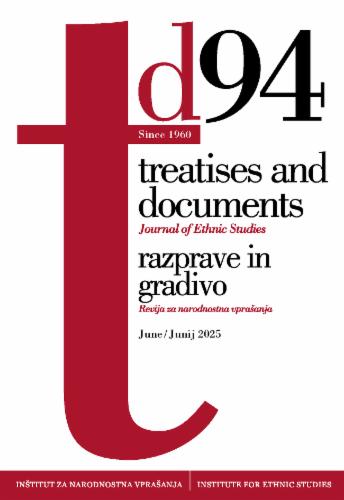Asymmetric Societal Bilingualism in Upper Lusatia: Narratives of Interlingual Upper Sorbian-German Families
Publié en ligne: 30 juin 2025
Pages: 77 - 95
Reçu: 07 mars 2025
Accepté: 19 mai 2025
DOI: https://doi.org/10.2478/tdjes-2025-0003
Mots clés
© 2025 Sara Mičkec Mitschke, published by Sciendo
This work is licensed under the Creative Commons Attribution 4.0 International License.
This article explores language practices and policies within interlingual Upper Sorbian-German families in the context of asymmetric societal bilingualism. In Catholic Upper Lusatia, where the intergenerational transmission of Upper Sorbian has been partially maintained, bilingualism remains largely confined to the minority group. While Upper Sorbian speakers also speak German, the dominant society is monolingual in German. Based on in-depth interviews with six interlingual families, supplemented by ethnographic observations, this study explores language attitudes that position German as the socially dominant language, whereas Sorbian is valued primarily within the family. The analysis reveals that although individual bilingualism is fostered within families and seen as a cultural asset, it does not necessarily translate into broader societal bilingualism, as the dominant language is generally perceived as the more appropriate in public life.
 Profil Orcid
Profil Orcid